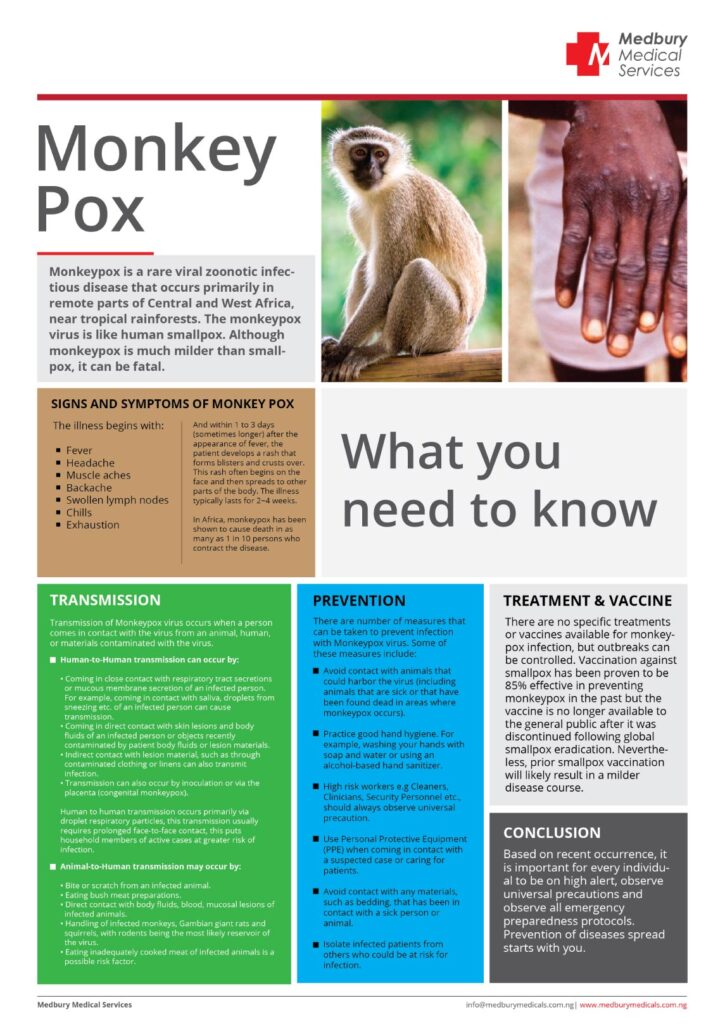
Monkeypox in the UK: New Case Confirmed in a Traveller from Nigeria
Health Authorities in the United Kingdom have confirmed a case of monkeypox. The UK Health Security Agency (UKHSA) believed that the patient contracted the infection in Nigeria before arriving in the UK. According to the UK Health Security Agency (UKHSA), the patient is receiving specialized care currently in Guy’s and St Thomas’ NHS Foundation Trust, London.

This rare zoonotic disease occurs primarily in remote parts of Central West Africa, close to tropical rainforests. Despite being much milder than human smallpox, monkeypox can be fatal.
Fortunately, monkeypox is not spread easily between people, and the overall risk to the public is very low, according to Dr. Colin Brown, Director of Clinical and Emerging Infections at UKHSA.
Related: Monkeypox Outbreak: what employers need to know and how to handle it
The UK Health Security Agency (UKHSA) is working with the NHS to respond to these cases swiftly and effectively. Contacting any passengers on the same flight with the patient, the patient family, and anyone who may have come into contact with the infected patient. While individuals without symptoms are not infectious, precautions are being taken to ensure that those in proximity can receive care quickly if they become ill.
Fever, headache, muscle aches, backache, swollen lymph nodes, chills, and exhaustion are some of the first symptoms identified. Rashes can develop, often beginning on the face and spreading to other parts of the body. Before finally forming a scab, which falls off later, the rash changes and goes through different stages.
Scientists identified the first case of this infection in 1958 in monkeys. Infections in human beings occurred in the 1970s in the Democratic Republic of Congo (DRC). And since then, scientists have reported cases in other parts of West Africa and Central Africa. Countries like Cameroon, Cote d’Ivoire, Gabon, Liberia, Nigeria, Sierra Leone, and the Democratic Republic of the Congo.
Related: Sexually transmitted diseases and how to prevent them
